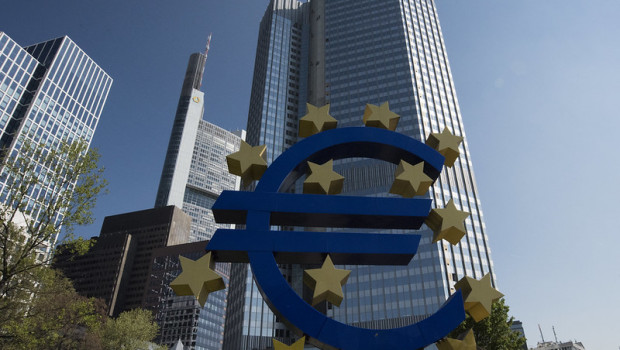Strong domestic demand boosts Eurozone GDP

Strong domestic demand supported Eurozone economic growth in the third quarter, official data showed on Tuesday.
Eurostat, the European Union’s statistical office, confirmed gross domestic product expanded at a quarter-on-quarter pace of 2.2% on a seasonally-adjusted basis, and by 2.1% across the wider EU, the same as in the second quarter and in line with its previous estimate.
Year-on-year, GDP was 3.9% higher in the Eurozone - marginally above consensus and the previous estimate, for 3.7% - and up 4.1% in the EU. That compared to annual growth of 14.4% and 13.8%, respectively, during the second quarter.
Employment was also higher, rising by 0.9% quarter-on-quarter, in both the single currency bloc and wider EU. In the second quarter, employment increased by 0.8% in both zones. Year-on-year, employment was 2.1% higher in the euro area and in the EU.
Underpinning the GDP growth was household consumption, with final expenditures increasing 4.1% in the Eurozone and 4.0% in the EU, compared to rises of 3.9% and 3.7% in the previous quarter.
Government expenditure also contributed positively, but gross fixed capital formation was responsible for a 0.2 percentage point drag on Eurozone GDP.
Among member states, France was one of the strongest performing economies, with GDP growth of 3.0%. Germany – the bloc’s biggest economy – reported growth of 1.7%, down marginally on the second quarter’s 2.0% rise. Italy was ahead 2.6% and Spain 2.0%.
Melanie Debono, senior Europe economist at Pantheon Macroeconomics, said: “Economic activity in the Eurozone was driven by domestic demand in the third quarter. This was in turn driven by a jump in household consumption, which alone added 2.1 percentage points to GDP growth.”
However, she cautioned: “Looking ahead, the economy is losing steam and downside risks are rising.
“Business surveys have eased substantially and are consistent with GDP growth slowing to below 1% on quarter-on-quarter terms. And we do not think these have captured the full impact of the recent year virus restrictions introduced in a number of member states.”
Daniel Kral, senior economist at Oxford Economics, said: “It is not surprising that growth was led by private consumption, as it reflects the tailwinds from the re-opening of economies and consumers returning to previously restricted services activities.
“However, we believe that the re-opening tailwinds are largely exhausted at this point. The Eurozone economy has a difficult winter period ahead, with a deteriorating health situation across the block, the uncertain impact of the Omicron variant and a return of often severe restrictions.
“We believe that consumption and overall growth in the fourth quarter will stall, but that this should be compensated for by higher growth later in 2022.”